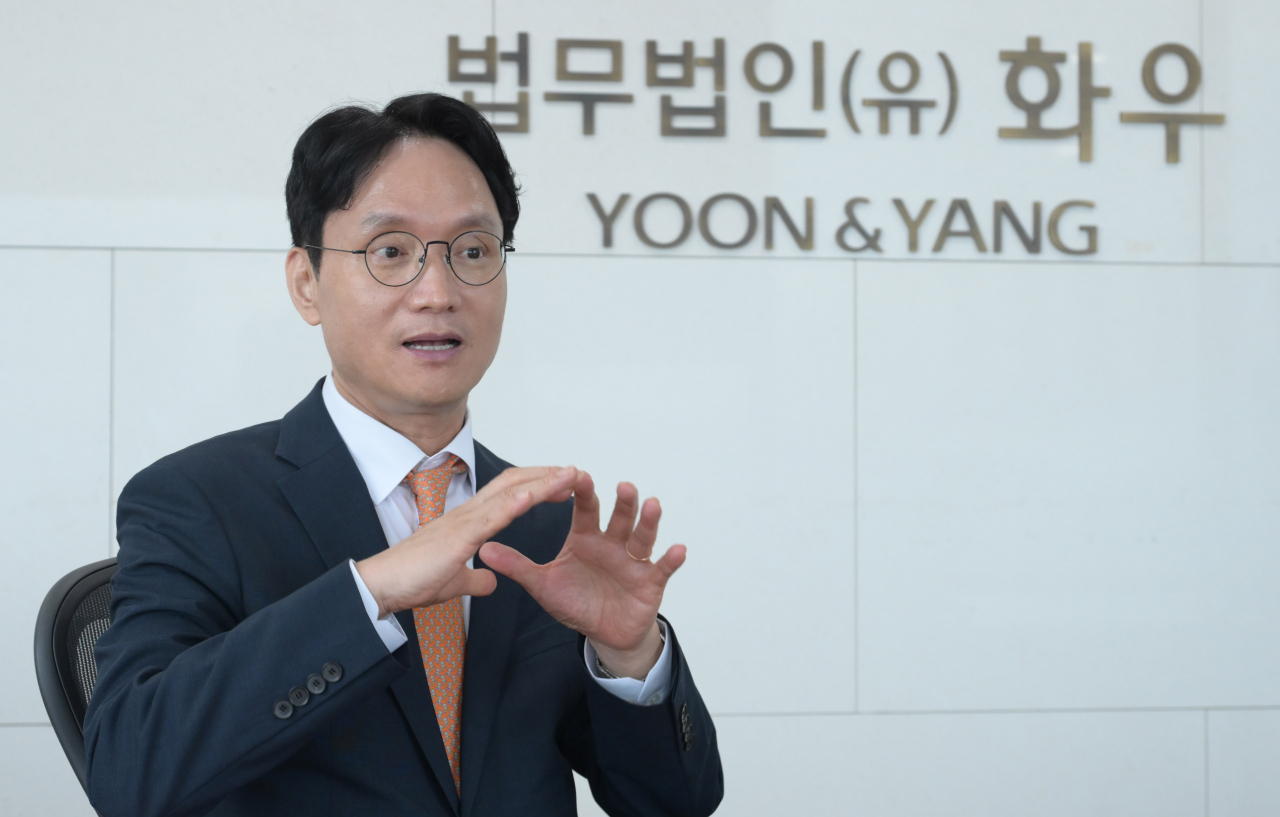[Herald Interview] Honoring Korean descendants who fought for their legal rights
Ethnic Korean legal service professionals gather to honor Koreans who stood up against discrimination overseas
By Son Ji-hyoungPublished : Sept. 25, 2023 - 15:36

Until the 1970s, blatant forms of discrimination against foreign nationals existed in Japan. For example, non-Japanese citizens were banned from entering law school regardless of their qualifications or if they had passed the bar exam, and many ethnic minorities were denied permanent residence, forcing them to reapply for permission to live in Japan every three years.
Kim Kyong-duk, a Korean descendant born and raised in Japan, passed the Japanese bar exam in 1976. He was offered the chance to become a naturalized Japanese citizen so he could be eligible for permission to enter the law school.
Kim refused to accept the offer by the Japanese Supreme Court, and chose to fight to put an end to such discrimination through litigation. Kim won the lawsuit in 1977 and became the first person without Japanese citizenship to be licensed to practice law in the country.
In a bid to honor Korean descendants like Kim, who devoted themselves to empowering overseas compatriots and their communities, was something the International Association of Korean Lawyers started to do this year through the Moon In-koo Award. The award is named after the late veteran lawyer who founded the organization, which now has a presence in over 30 countries.
"The presence of (ethnic Koreans practicing law overseas) is so huge that they are now capable of countering the prejudice targeted at themselves, overcoming the days when they were humiliated," Kim Kwon-hoe, president of the IAKL and partner attorney at local law firm Yoon & Yang, said in an interview with The Korea Herald.
Kim Kyong-duk was posthumously awarded for his courage to fight against discrimination to open the doors for specific careers in Japan, as well as for his legal fight for the rights of ethnic Koreans in Japan -- most of whom were forced to move there during World War II.
He represented ethnic Koreans in Japan in pension lawsuits and lawsuits requesting the repatriation of Koreans remaining in Sakhalin, Russia. Kim also provided criminal defense services for those who refused to have their fingerprints taken, and he worked in trials for post-war compensation for Koreans in Japan and in trials for comfort women, among others.
Kim's son, Kim Chang-ho, who is an active attorney in Japan, received the award on behalf of father, who passed away in 2005, at the awarding ceremony on Sept. 16 on the sidelines of IAKL annual conference in Seoul. Nearly 500 ethnic Korean legal service professionals from 20 countries were in attendance at the Seoul event, which was held for the first time since the COVID-19 pandemic.
"Such changes would have been impossible without such sacrifices, so I thought we needed to shed light on the sacrifices and honor their spirits," IAKL President Kim said.
"(The Moon In-koo Award) could help more ethnic Koreans be courageous and stand up for other ethnic Koreans"

Since the IAKL's founding in 1988 by the late attorney Moon In-koo, it has grown to have a presence in several countries, including the United States, Canada, Australia and New Zealand, as well as in countries in Europe, South America and the Middle East.
Admitted to the bar in Korea in 1991 and New York in 1999, Kim joined the IAKL in 2008. He has led the international organization since November 2022.
"The brainchild of the IAKL was that we needed a platform where (ethnic Korean attorneys living abroad) are encouraged to come together in solidarity and bring together their wisdom and capability to fight against discrimination, hatred and prejudice," he said,
Beyond that, the IAKL is now working to serve as a platform for Korean descendants working as attorneys across the world, so that they could find connections with other ethnic Koreans working in law and communicate with each other, according to President Kim.
"For (Korean diaspora), standing hand in hand will give them enormous strength," he said.
For instance, the IAKL helped bereaved families of the deadly river boat incident in Budapest, Hungary in 2019 find an attorney to work for them, Kim noted.
"If you (are dealing with a foreign legal affair and) are put in touch with ethnic Korean lawyers, they can communicate using the Korean language," he said. "Then you feel comfortable with them, you begin to trust them, and business-wise you begin to trust their work."






![[Weekender] How DDP emerged as an icon of Seoul](http://res.heraldm.com/phpwas/restmb_idxmake.php?idx=644&simg=/content/image/2024/04/25/20240425050915_0.jpg&u=)


![[Music in drama] An ode to childhood trauma](http://res.heraldm.com/phpwas/restmb_idxmake.php?idx=644&simg=/content/image/2024/04/25/20240425050929_0.jpg&u=)









![[Herald Interview] Mistakes turn into blessings in street performance, director says](http://res.heraldm.com/phpwas/restmb_idxmake.php?idx=652&simg=/content/image/2024/04/28/20240428050150_0.jpg&u=20240428174656)
